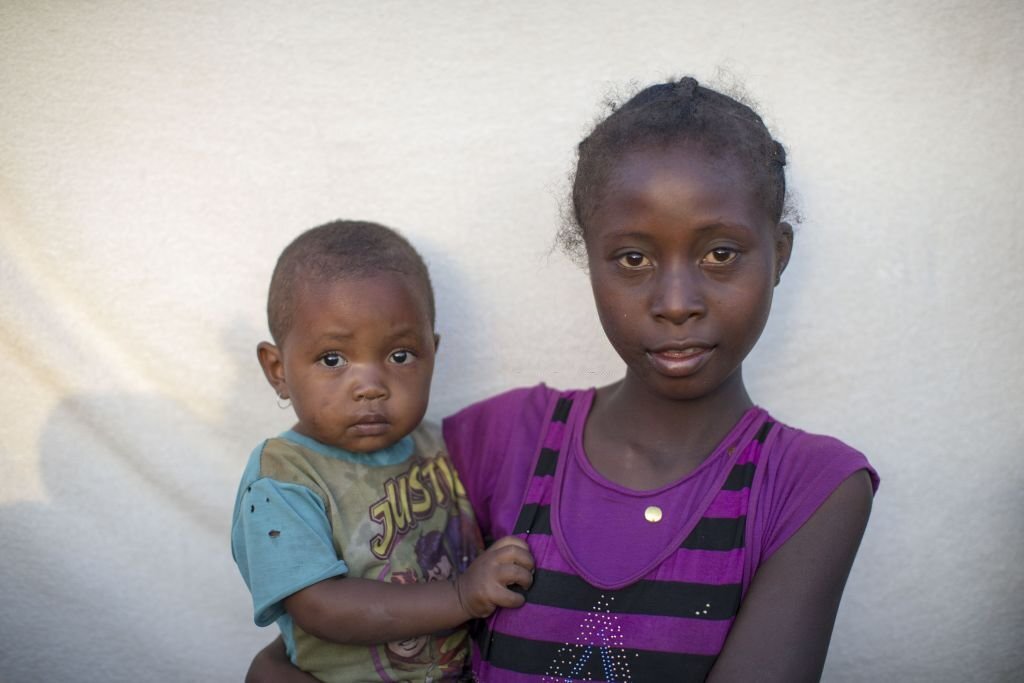In India, marriage is a social institution according to which our society perpetuates. It is a means of establishing a family relation. It is not just a union of a girl and a boy but it is a union of two families. It has many forms of rituals and ceremonies. In India, approximately one in four young women are married before their 18th birthday. This marriage is known as Child Marriage. According to Indian law, child marriage is a marriage where either the woman is below 18 or the man is below 21. Child marriage is defined by The Prohibition of Child Marriage Act, 2006 as child marriage is a marriage about to be solemnized, to which either of the contracting parties is a child and child for a purpose of marriage is defined based on the gender of the person. If male, it is 21 years of age, and if a female, it is 18 years of age.
Origin of Child Marriage
It is believed that at the time of Muslim invasions (1000 years ago), they used to rape unmarried Hindu girls which lead the Hindu community to marry off their daughters at an early age to protect them. During the period of Sultans, child marriage was practiced and the status of woman was very poor. According to Dham sutras, a girl should marry only after attaining the age of puberty. According to Manu smriti, if the father fails to marry his daughter within 3 years of the age of her puberty, she herself can find her husband. According to Medhatithi’s Bhashya, eight-year is the right age for a girl to marriage. According to Tolkappiyam, boys should marry before the age of sixteen while the age of girls should be twelve. Those areas with little or no economic opportunities think that child marriage is a tool to make a girls’ better future as girls are considered as the property of someone else since birth.
Reasons for Child Marriage
1. Poverty of a family–
In rural areas, female children are denied their equality. They are a victim of the poverty of the family. The poor family considers the female child as a burden so to avoid this burden, they give her hand to someone else to release themselves from the burden of her duties.
2. Social insecurity–
According to some people, a married woman is much safer than an unmarried woman because unmarried women are seen as malafide intentions which lead to crimes against women. To protect them from assaults, teasing, and other offenses, parents are in a hurry to marry their daughters as soon as she attains puberty.
3. Refuse to share ancestral property–
In some rural areas, parents use to think that their property belongs to their son only and if their daughter gets married at an earlier age, they will be out of the share.
4. Refuse to educate a female child–
Generally, families discriminate between boys and girls. They invest for the education of male children as they are considered as future assets and economic base of the house while female children are considered as the burden of the family because according to the female child do not need to do any work but need to look after the household works before and after marriage.
5. Social customs and Traditions–
This reason still defines the mindset of particular castes and communities in society. Child marriage in India is practiced since the invasion of the Mughals and then the Britishers. It was performed to protect the young girls from abduction and social abuse.
6. Patriarchal system-
The modern scenario of child marriage in India revolves around the patriarchal system. Girls do not have much say when it comes to their sexual rights and freedom. It is the male who possesses more power in such matters.
Effects of Child Marriage
1. Early pregnancy–
Child marriage in India imposes multiple hardships upon both girls and boys. The male child has to take up the responsibility of his wife. The girl child has to indulge in sexual intercourse even when she is not prepared both mentally and physically. Unwanted and multiple pregnancies suck the life out of her. The painful process of childbirth may also cause the death of the young mother. Miscarriages are common in young brides. Even if the childbirth is without any complications, the mother and child suffer from malnutrition and poor weight. Their immunity is low due to which they fall sick frequently.
2. Inabilities to plan or manage families–
Young children have less ability to make decisions about their nutrition, healthcare and household management.
3. Desire for the male child–
Young girls are forced to conceive many times till the birth of a male child.
4. Difference in the age of bride and groom–
In most child marriages, it is the girl who is a child and not the boy. When the girl is a child, she naturally does not have any freedom to express her opinions and has to blindly obey the orders of her husband.
5. Economic effect of Child Marriage–
By far the largest economic cost related to child marriage is from its impact on fertility and population growth. By contributing to larger families and, in turn, population growth, child marriage delays the demographic dividend that can come from reduced fertility and investment in education.
The International Center for Research on Women (ICRW) and the World Bank have been collaborating on a multi-year research project to assess these impacts and costs.
Laws on Child marriage
1. The Child Marriage (Restraint Act), 1929-
This is the first act that regulates child marriage by prescribing the required age of marriage for both parties to the marriage across India. It aims to restrain child marriage.
In the court held that the minimum age of marriage for a girl and boy is 18 and 21 years respectively.
2. The Prohibition of Child Marriage Act, 2006-
This act aims to punish those who are involved in the performance of child marriage and to provide a legal opportunity to the spouses of children marriage to repudiate the marriage by way of a decree of nullity.
3. Child Marriage and offence of rape (IPC)–
The main cause of child marriage is a physical relationship between a husband and a wife and the procreation of children. Section 376 of the Indian Penal Code, 1860 states that in certain cases sexual intercourse with or without consent is an offense of rape. Exception 2 of this section states that
“Sexual intercourse or sexual act by a man with hid own wife, the wife not being under the age of 15 years, is not rape.”
If the wife is above 18 and the sexual intercourse happens with her consent, then it amounts to no rape. If she is above 18 but sexual intercourse happens without her consent then it amounts to rape. If she is below 18 and sexual intercourse happens with or without consent then it is termed as rape. If the girl is above 15 and she is a wife then sexual intercourse with or without her consent is no rape. If the girl is a wife and below 15 then sexual intercourse with or without consent is rape.
4. Law Commission of India Report-
Its report recommended following things-
- Child Marriage below 18 should be prohibited
- Marriage below 16 is void while between 16-18 is voidable
- Maintenance and custody applied to both void and voidable marriages
- Registration is compulsory
5. Child Marriage in Hindu Marriage Act, 1955-
According to this act, child marriage is neither void nor voidable. There are no provisions to punish the parents or people who solemnized the marriage. A girl can get married only if she wants to get married before attaining 15 years and she challenges the marriage before 18 years.
6. Child marriage in Muslim Personal Law-
It is presumed that a Muslim attained majority at the age of 15. Capacity in which Muslim can marry:
- Sound Mind
- Majority
7. Indian Christian Marriage Act-
If the marriage is to be contracted between the minors, a preliminary notice is to be issued 14 days prior to the marriage. After the expiry of said period, the parties can marry without the consent of their guardians.
Government’s Initiative
The government took major steps to eradicate the evil of child marriage in our society. If anyone performs the children’s marriage, they shall be punished with simple imprisonment which may extend to three months and shall also be liable to a fine, unless he proves that the marriage is not a child marriage.
Suggestions
- We should develop a support system to educate girl child.
- Providing economic support and incentives to girls and their families
- Educate parents and community members
- Encourage supportive laws and policies.
Conclusion
Child marriage is considered as one of the social evils which can’t be removed easily without the support of society. We have seen many reasons for children’s marriage, its causes and effects. From the above topics, it can be concluded that if we marry too early, it can affect our reproductive and sexual health the most. The child bride suffers from high rates of complications such as premature delivery, miscarriages and stillbirths.
Those laws will not serve the purpose if society does not cooperate. Uniform Civil Code will also help to prevent child marriages in India.








